Winter Washing Tutorial

Let’s say you’re a detailer who lives in an apartment, and you don’t have access to a hose for water. Worse yet, you have your own home and hose, but its winter! Your car has been dirty for a few days and that nervous twitch you get is starting to concern your friends and family. What is a detailer to do in such inopportune and sanity threatening conditions? A rinseless wash of course!
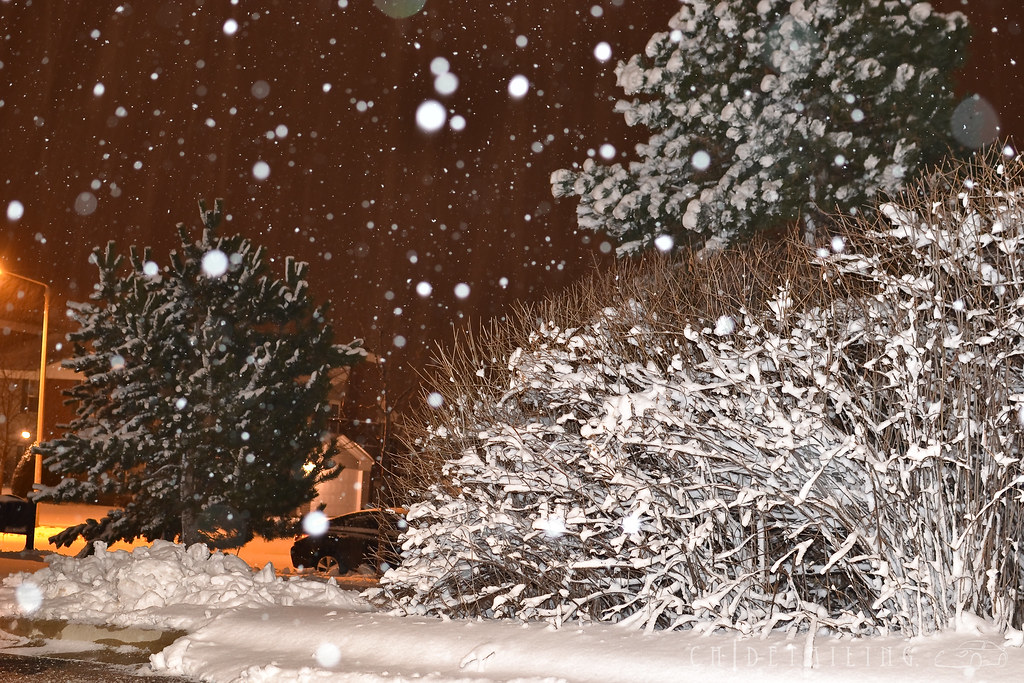
But wait, you say, I don’t have hose access and its super freakin’ cold outside! How am I supposed to wash a car like that, you big dummy?!
Hold on! This is exactly when a rinseless wash proves it’s merit. No hose? No problem! Have a garage? Wash indoors!
The car I’m going to be washing is my 2004 Subaru WRX. Its been a few days since I’ve washed it and I’ve been driving around in the snow and slush lately. It needs to be clean!

It has a fine layer of salt and grime on it, and is a perfect candidate for a rinseless wash. Note: If your car is really, really dirty you may want to run it through a touch-free tunnel wash first to knock off all the heavy dirt.
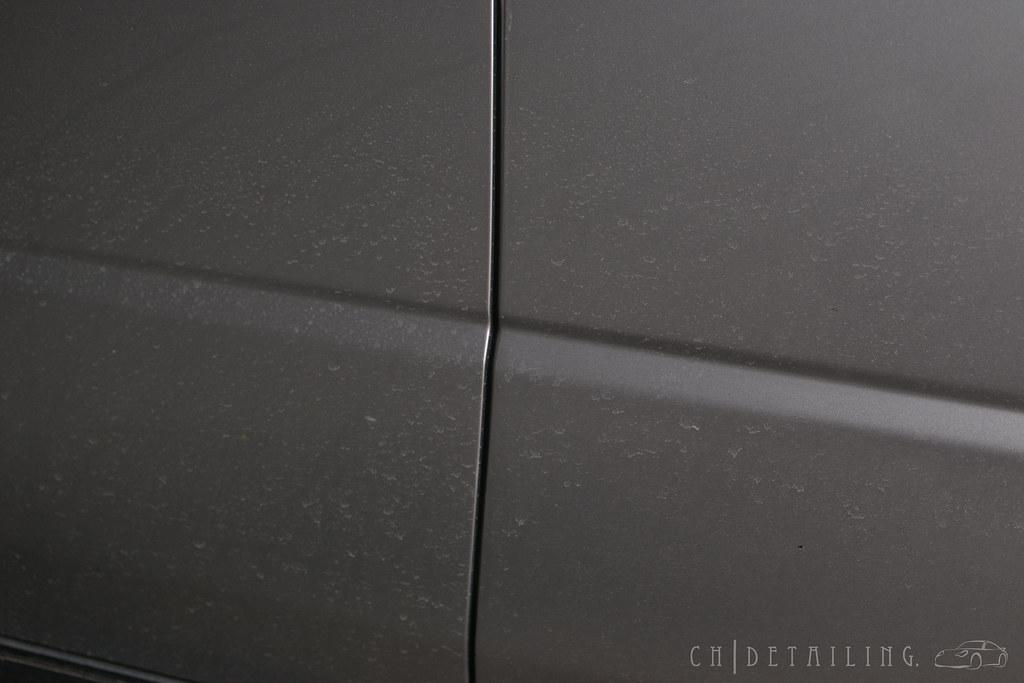
“Working clean” is one of the most important concepts of detailing, and it begins with your buckets. A clean bucket is a virtue, and its the first step in any washing process.
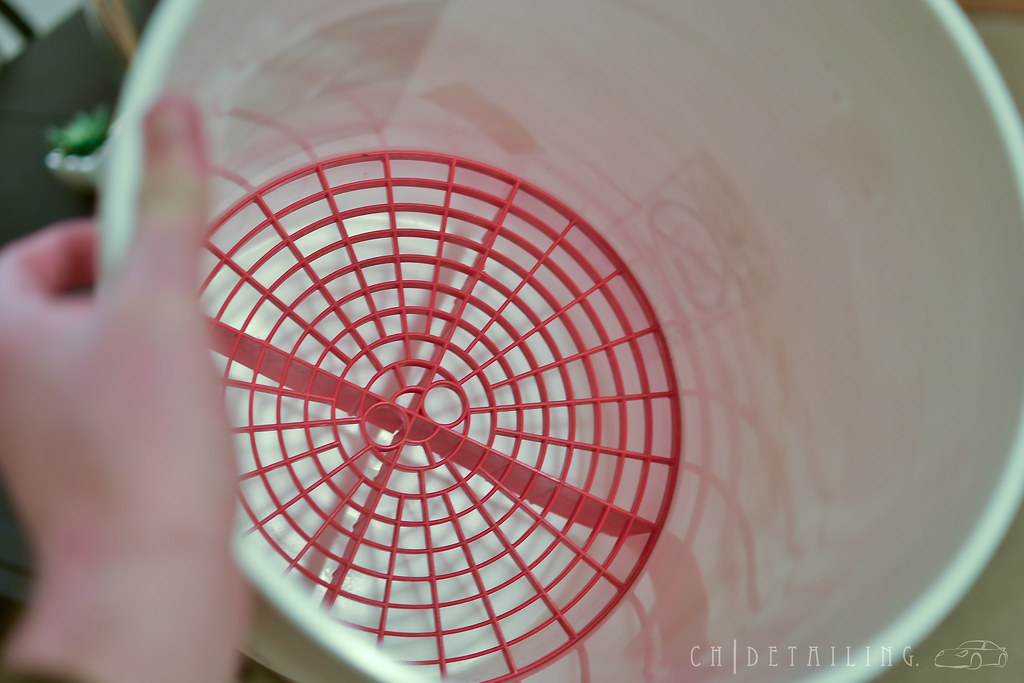
Now that your buckets are clean you can fill ’em up. From where, you ask? The faucet, of course! More than likely your big 5-gallon wash buckets won’t fit in the sink, in this situation you may choose to use a smaller bucket to fill up your big ones.
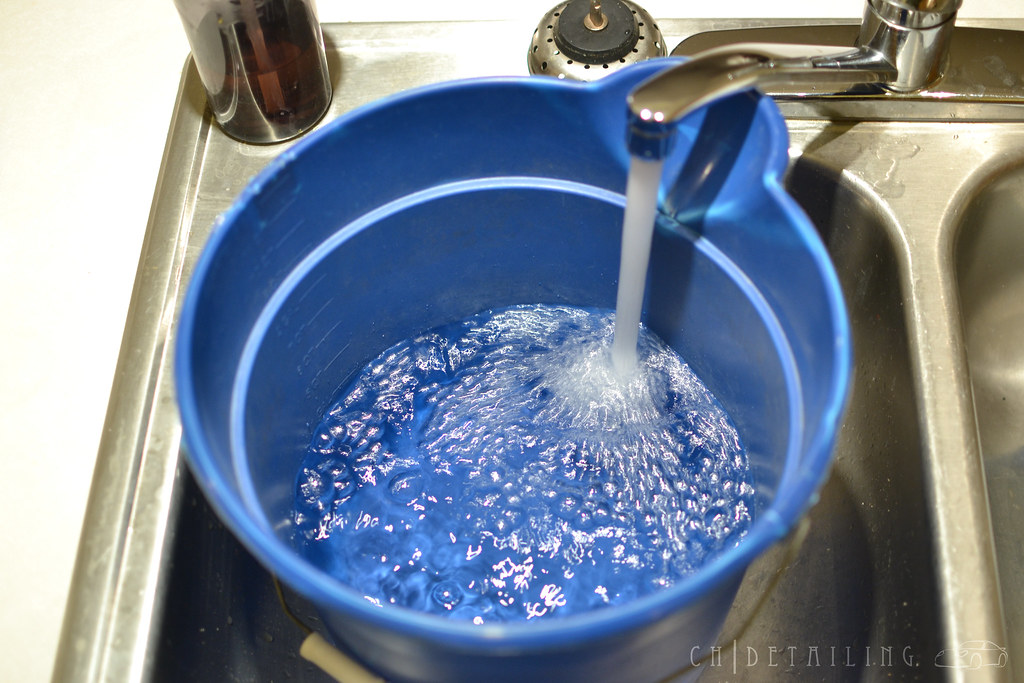
I like doing this because my small bucket allows me to precisely measure the volume of water that I’m using.

Fill up each bucket with about 4 gallons. This is enough so that you won’t run out of wash solution and ensures enough depth of water to keep the dirt at the bottom of the bucket.
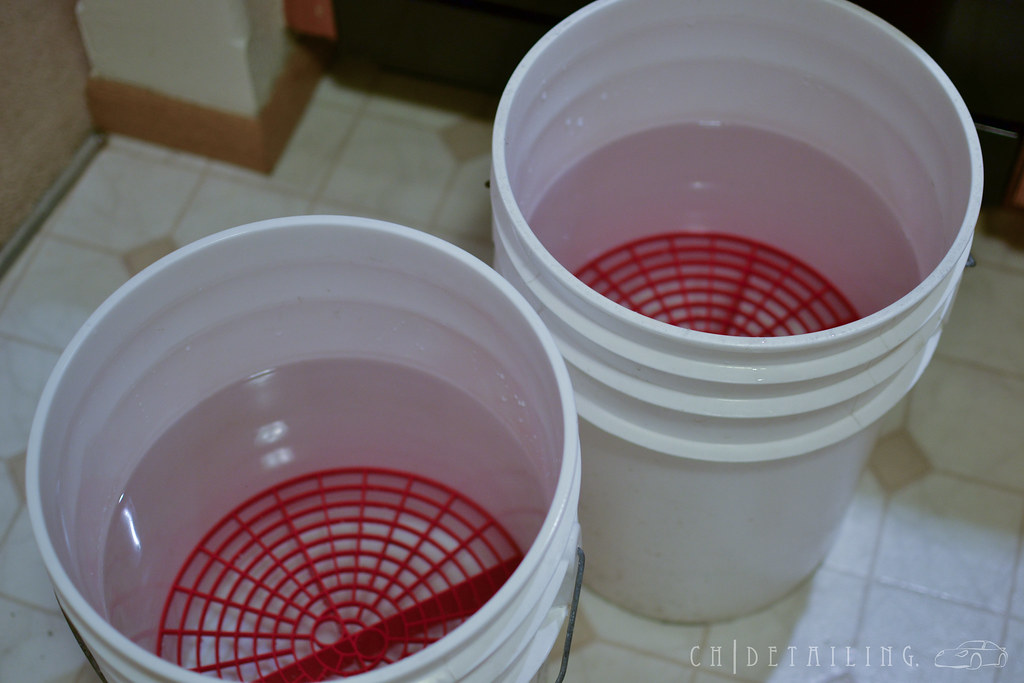
If your car is excessively dirty, or you’re excessively neurotic, you may elect to use a bug sprayer to pre-treat your vehicle. You will fill the sprayer with the same solution as you will use to wash with.

Take your buckets and sprayer out to the garage, and get your rinseless wash concentrate. For this example I will be using Blackfire Wet Diamond Rinseless Wash. Optimum, Detailers Pro, and Ultima also offer an excellent rinseless wash.
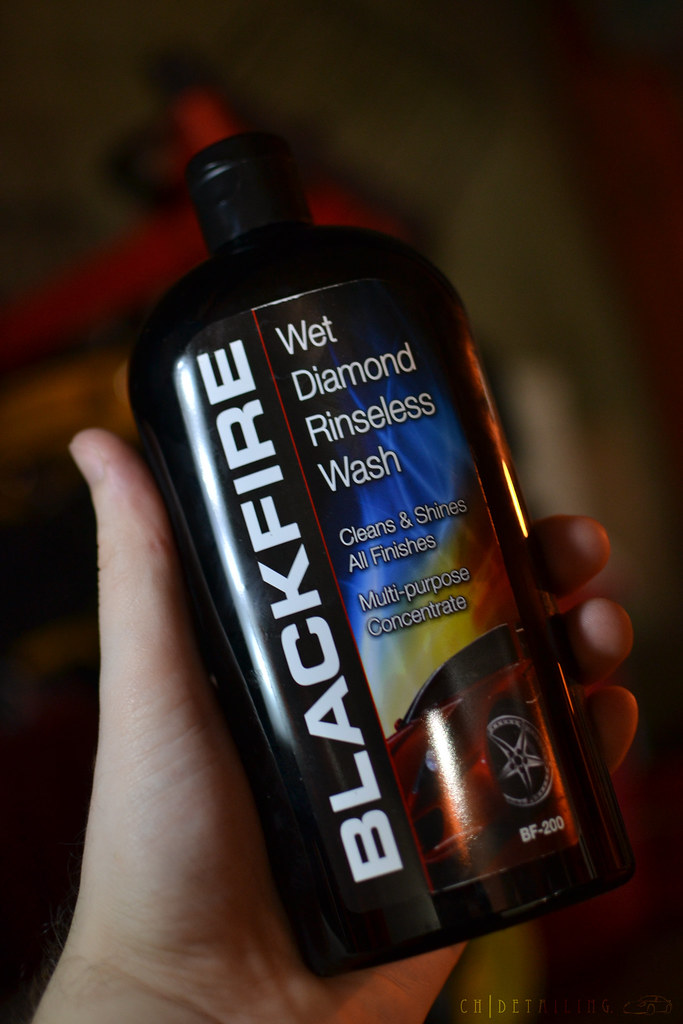
Blackfire suggests using 1 ounce of concentrate for every 2 gallons of water. Since we measured how much water we put into our bucket already, we know to use 2 ounces of concentrate. The handle of my sprayer contains this nifty measuring tool, so I chose to use that.

Now you’re going to need to get your washing medium, I like to use a super plush microfiber towel. For this type of wash, a microfiber towel has quite a few benefits over a standard wash mitt. A towel has a significantly greater amount of surface area, allowing you to work cleaner for longer. The deep pile is better suited to trap dirt, and also is able to hold a huge amount of wash solution. Lastly, when you’re done washing you can wring the towel out and use it to get the vehicle 95% dry.

Place your towel into your wash bucket and allow it to soak for a few minutes.
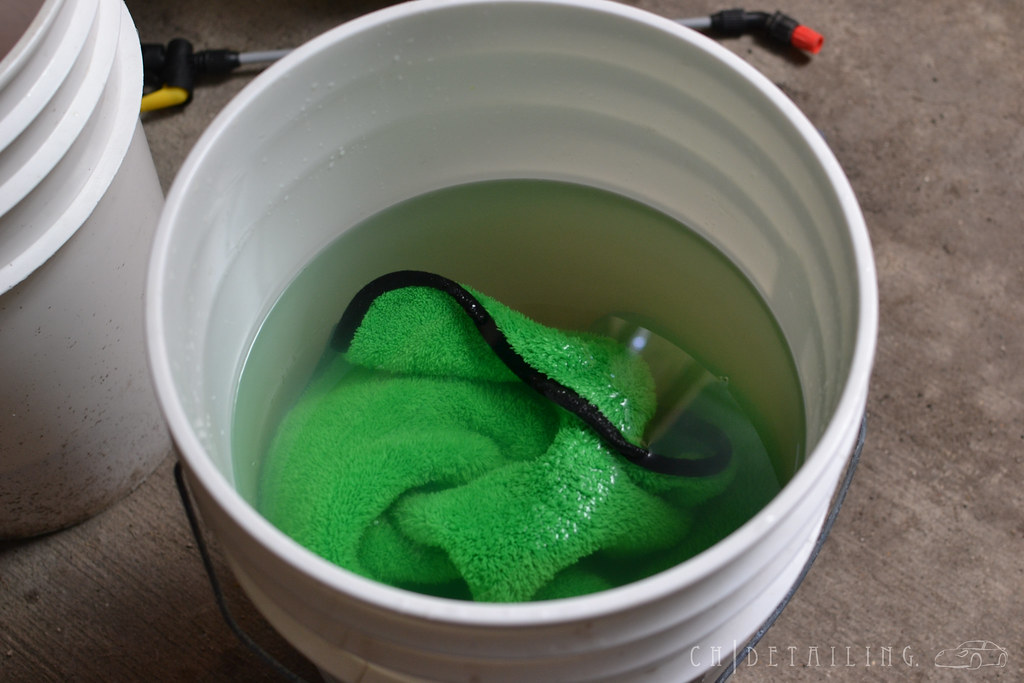
In the meantime you can take your sprayer and saturate the vehicle surface with wash solution. This is an added precaution against wash induced surface marring, as it helps to loosen the dirt and clean the surface before you actually touch it.

You’re not necessarily trying to rinse off the dirt with the sprayer, but are rather applying a heavy mist of the rinseless wash to the surface. If you wax your car regularly, it should create nice little beads of water.
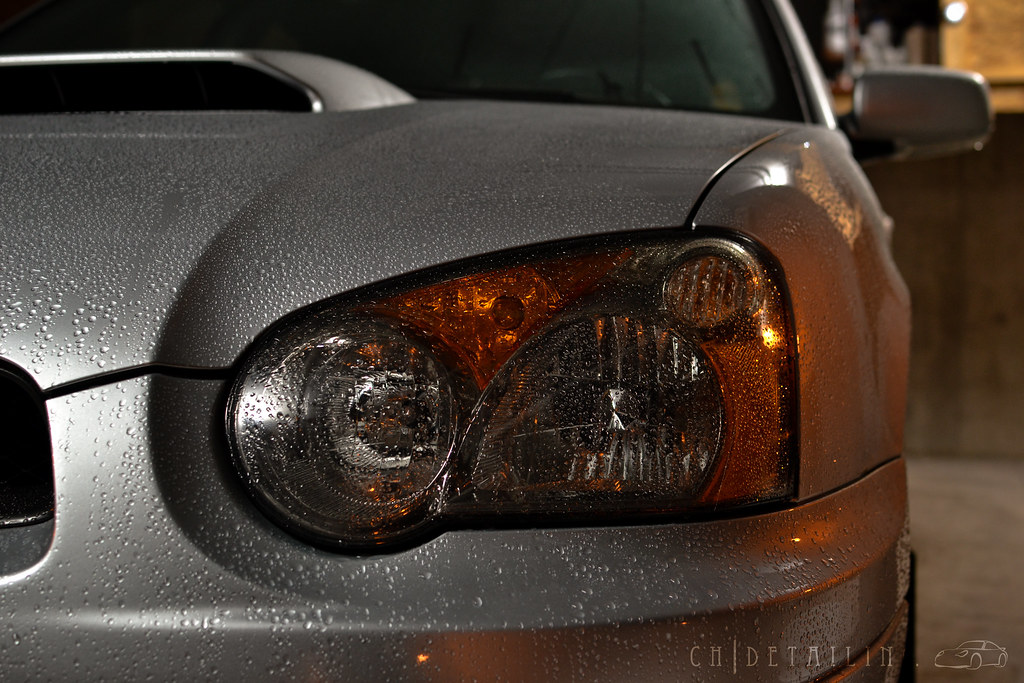
Now you can begin washing. I like to start by folding up the towel into 8 sections (4 per side). This makes its size very manageable, it creates 8 different ‘clean sections’ to use while washing, and it makes the towel thick enough to create a cushion between your hand and the paint. This helps to ensure that you’re not using the sand and grit to grind into the paint, but are whisking them off the surface instead.

When washing, you want to use a back and forth motion to wipe off the dirt rather than a circular motion. This will help to minimize the appearance of swirl marks. Make it a point to clean out your towel in the rinse bucket often. You should use your best judgement as to how often to rinse your towel, but a good rule would be after every panel or two (depending on how dirty your vehicle is).
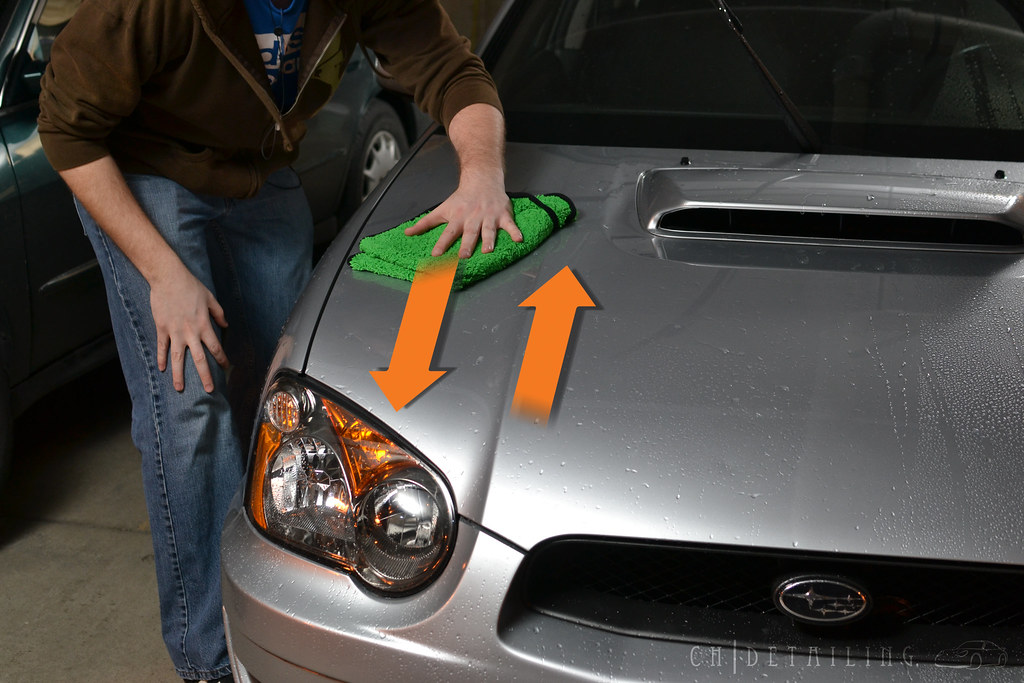
Once your car is completely clean, thoroughly clean out your wash towel in the rinse bucket. Once it is clean as can be, wring it out and get it as dry as possible. You can now dry off your vehicle using the same towel, this will get the surface about 95% dry.
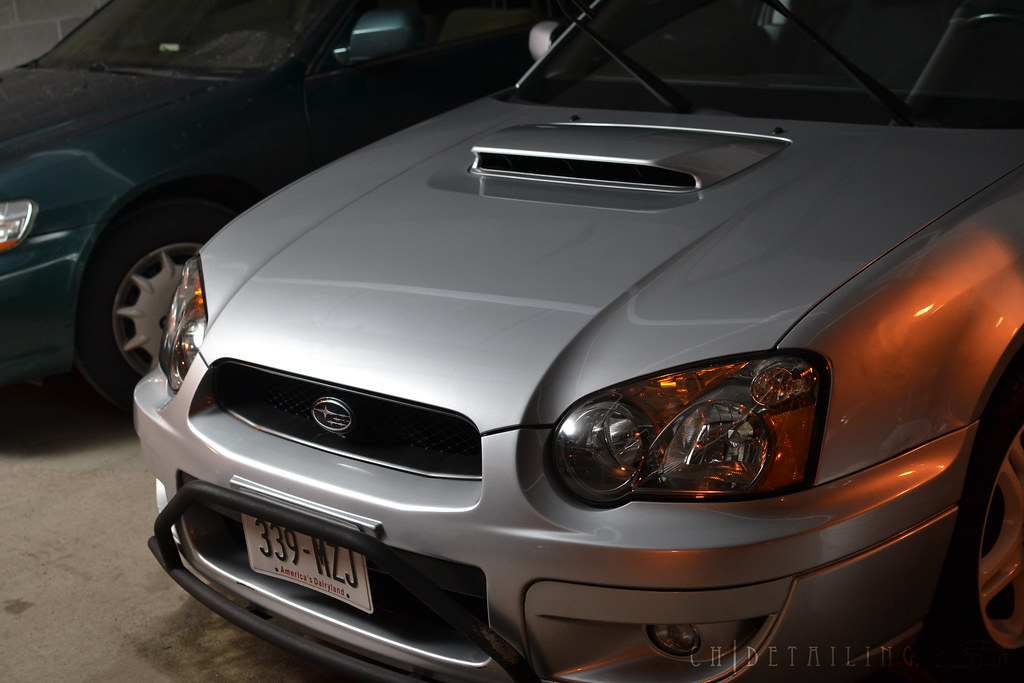
In order to get your vehicle completely dry with a streak free finish, you need to mist it with a quick detailer or spray wax. I’m going to be using Blackfire Wet Diamond Polymer Spray, but there are many other excellent products out there to choose from.
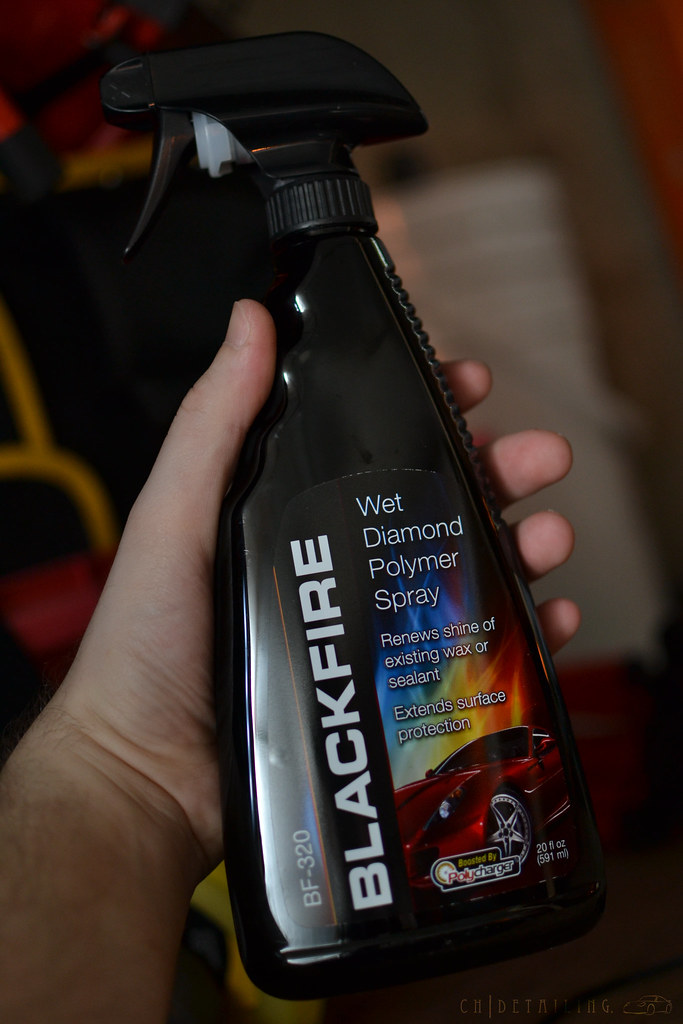
Mist a bit of quick detailer onto the surface and work it into the surface using a clean microfiber cloth in a circular pattern. Buff to a shiny and dry finish. You can use this on glass as well as paint, but if you are using a true spray wax you may want to use a dedicated glass cleaner instead.

Last but not least, is the wheels. You should do the wheels last, as they are inevitably much more filthy than your paint and will transfer a large amount of dirt and brake dust into your rinse and wash buckets. Switch to a new microfiber cloth (not the one you used on the paint), dedicate a cheap towel specifically for this task.
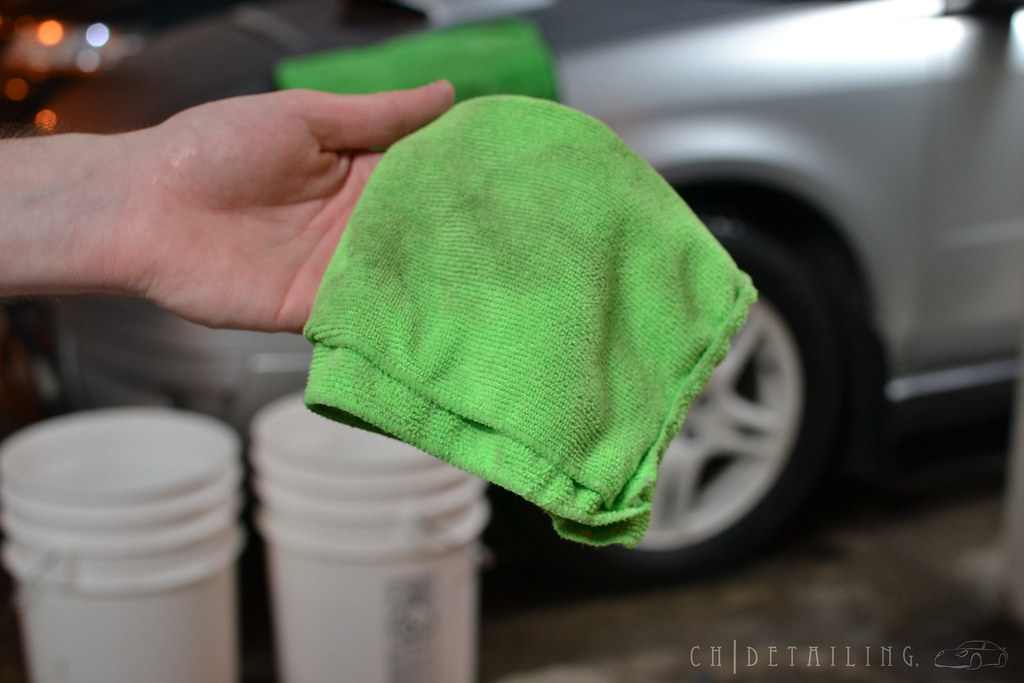
Saturate your towel in the wash bucket and wipe down both the tire and wheel. If you keep your wheels detailed this should clean them up nicely, if not, this process may not be sufficient.
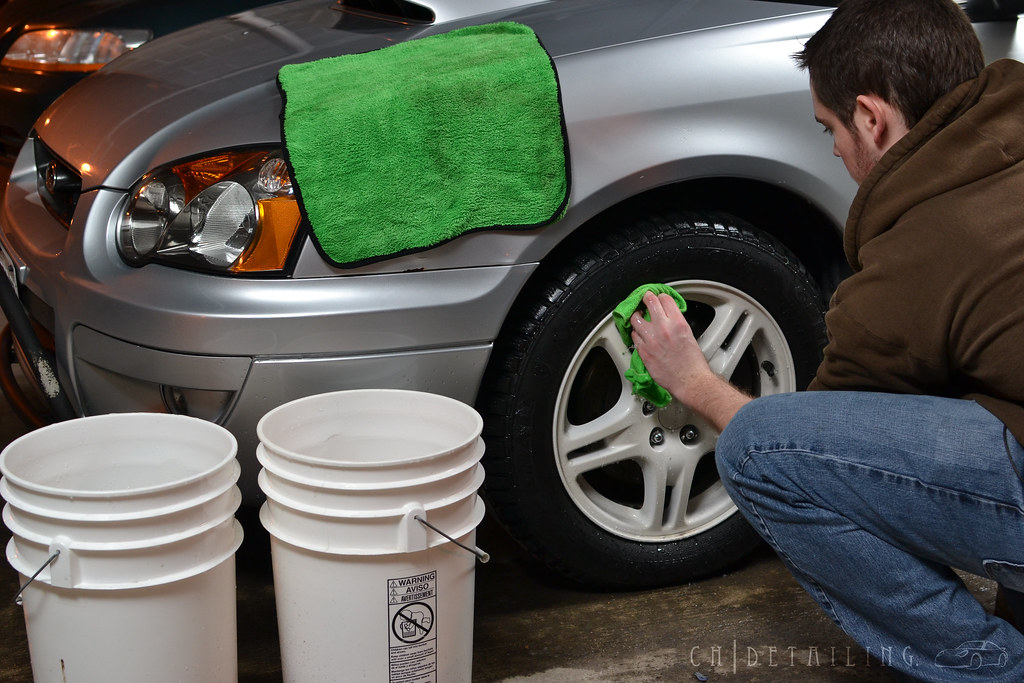
For complex wheels (or if you have fat fingers) you can use a brush to clean the full face of the wheel.

Dry your wheels using the same method as you did for the paint. Clean out your washcloth, wring it dry, and wipe off any standing wash solution.
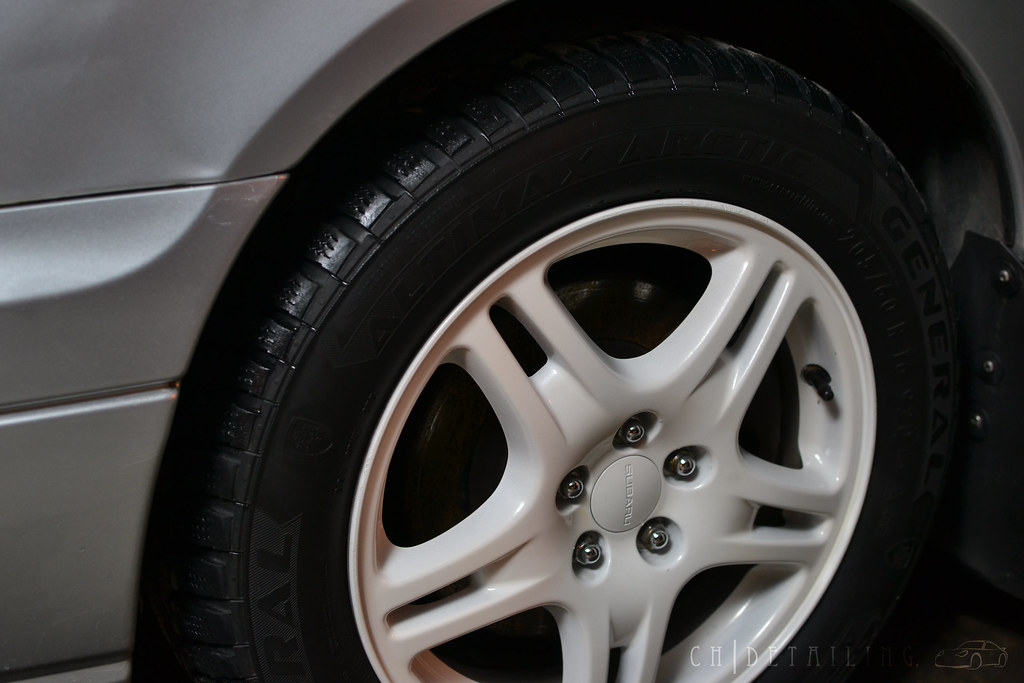
Finally you can apply the tire shine. I’ll be using Blackfire Total Eclipse Tire Shine.
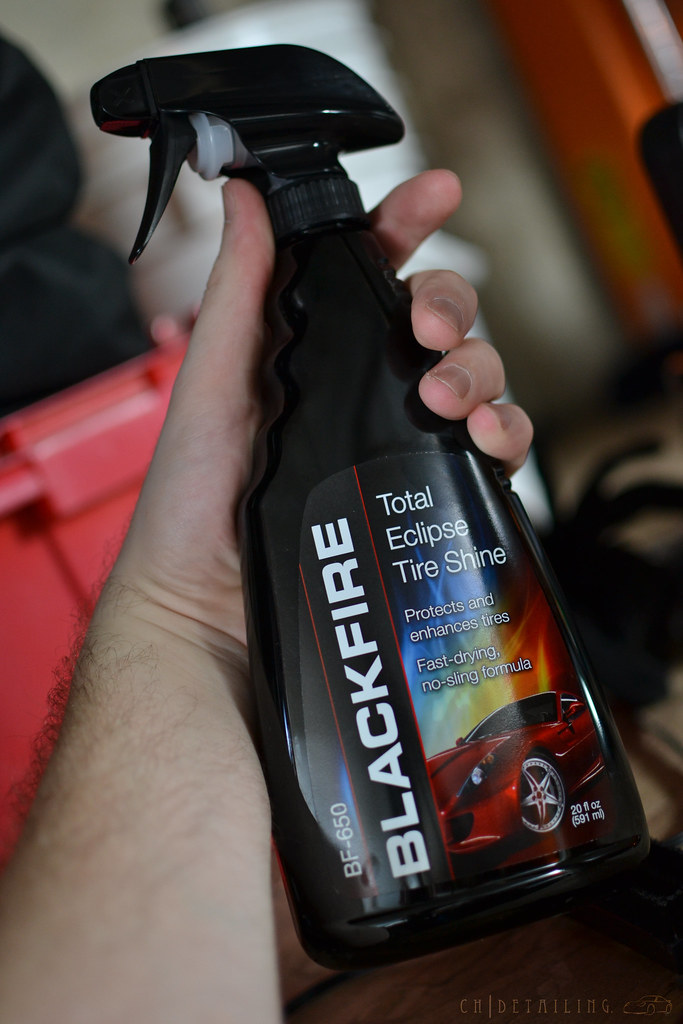
Grab another cheap cloth and begin by spraying a bit of tire shine directly onto the tire and the cloth.
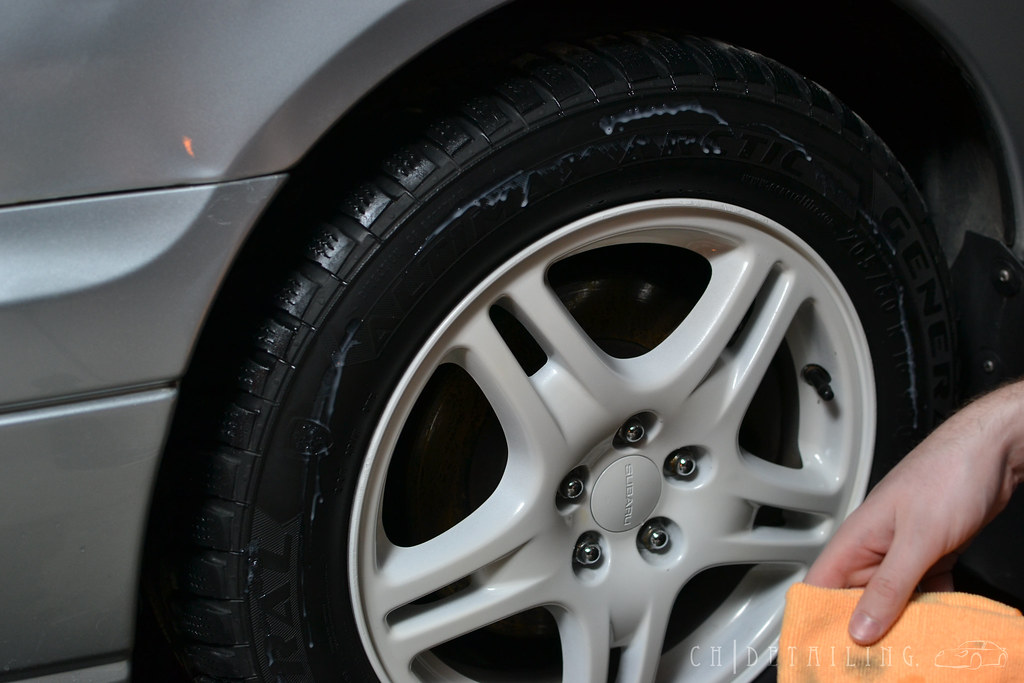
Work the product into the tire making sure not to leave any ‘dry’ spots.
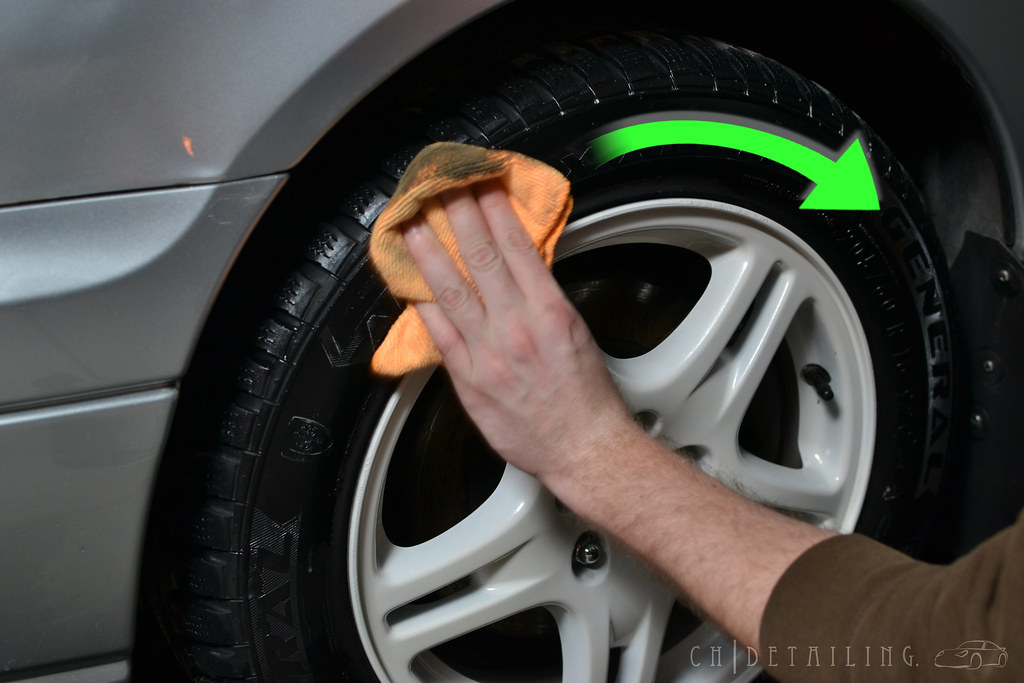
Allow the product to dry briefly, then buff off any excess to reveal a smooth even sheen.
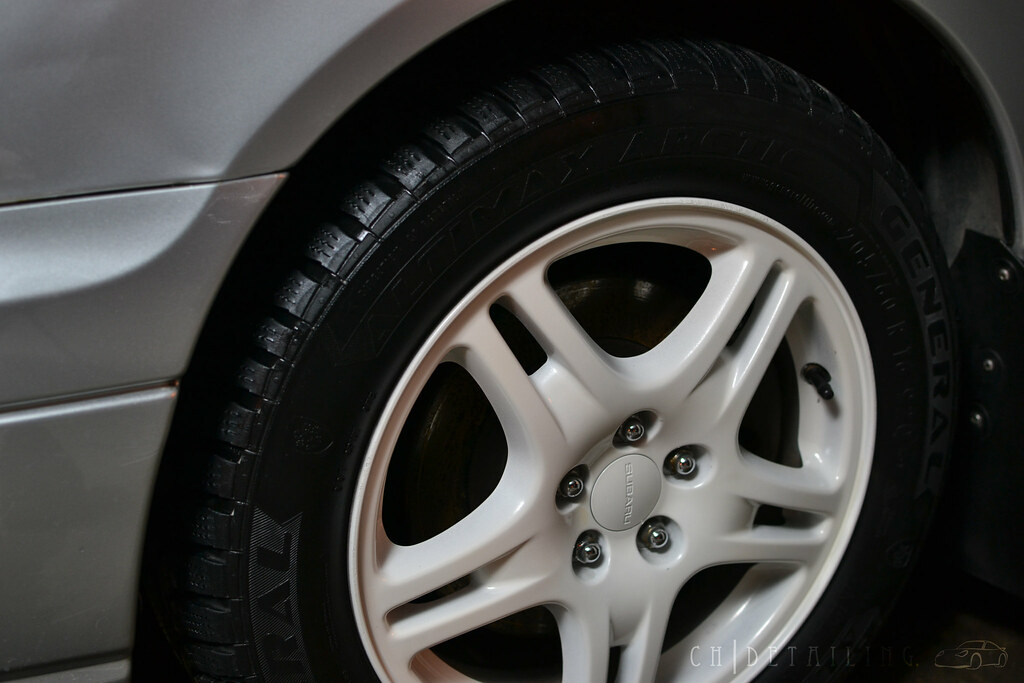
And there you have it! A clean and shiny vehicle without the need for a hose, and done so without the risk of surface scratching. 🙂


[…] as I write this), but with a garage and a couple extra layers you can do it yourself at home with my winter wash tutorial. Too often do I see my friends or customers taking their cars to the “do it yourself” […]